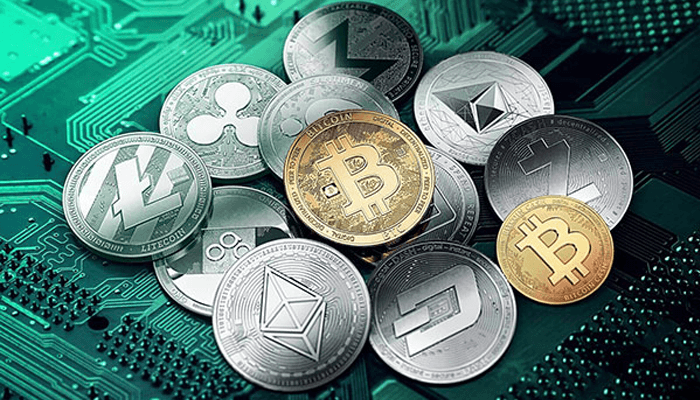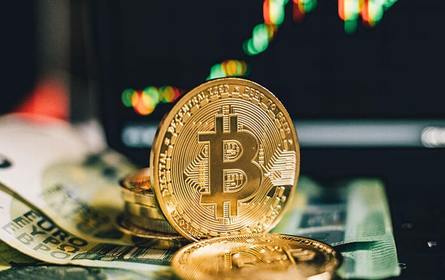DeFi tokens represent a revolutionary concept within the cryptocurrency space. Unlike traditional cryptocurrencies like Bitcoin, DeFi tokens are more than just digital currencies. They serve as the backbone of DeFi applications, fueling smart contracts, and facilitating various financial activities, such as lending, borrowing, yield farming, and decentralized exchanges.
One of the key features of DeFi tokens is their programmability. Developers can customize the token's functionalities, allowing for complex financial instruments and sophisticated governance structures. Examples of popular DeFi tokens include Uniswap (UNI), Aave (AAVE), and Compound (COMP), which have experienced significant growth due to their innovative use cases.

The growth of DeFi has been nothing short of remarkable. The total value locked (TVL) in DeFi protocols has surged to billions of dollars, demonstrating the increasing demand for decentralized financial services. DeFi offers an alternative to traditional finance by enabling permissionless access to financial products, greater transparency, and reduced counterparty risk.
One of the driving forces behind DeFi's success is the community-driven nature of these projects. Open-source development allows for rapid innovation, and DeFi tokens often incorporate decentralized governance mechanisms, enabling token holders to participate in decision-making processes. This democratization of financial services is reshaping the financial landscape, and DeFi tokens play a pivotal role in this transformation.

Creating a successful DeFi token requires a deep understanding of the DeFi ecosystem, market dynamics, and user requirements. Several factors influence the development of a DeFi token, including:
Identifying a unique and compelling use case is crucial. Whether it's enabling decentralized lending, liquidity provision, or governance, the token's purpose must resonate with the target audience.
Security is paramount in the DeFi space. Smart contract audits, code reviews, and rigorous testing are essential to avoid vulnerabilities and potential exploits.
As the DeFi ecosystem expands, cross-chain compatibility becomes important. Ensuring that the token can operate seamlessly across different blockchain networks enhances its utility and reach.
DeFi protocols must handle a high volume of transactions efficiently. Scalability solutions such as layer 2 solutions or blockchain sharding can address these challenges.
Building an active and engaged community is vital for a token's long-term success. Regular communication, community incentives, and governance participation can foster a loyal following.
The development process of a DeFi token can be intricate, but following these key steps can lead to a successful outcome:
Understand the market demands, assess potential competitors, and identify gaps that your token can fill. Research existing DeFi protocols and their tokenomics to draw insights for your project.
Choose a suitable token standard for your DeFi token. Ethereum's ERC-20 standard is the most common choice, but other standards like ERC-721 or ERC-1155 can be appropriate for specific use cases.
Develop a secure and audited smart contract to define the token's functionalities, including issuance, supply control, and governance mechanisms.
Plan a fair and transparent token distribution model to ensure a wide and diverse distribution of tokens, avoiding centralization risks.
Establish liquidity for your token on decentralized exchanges (DEXs) and pursue listing opportunities on reputable centralized exchanges to increase accessibility.
Engage with the community through social media, forums, and events. Implement community-driven initiatives to encourage active participation.
Conduct comprehensive security audits by reputable firms to identify and rectify potential vulnerabilities.
Continuously improve the token based on feedback and changing market conditions. Incorporate new features, upgrade smart contracts, and adapt to evolving trends.
Governance is a core aspect of the DeFi ecosystem, giving token holders the power to shape the protocol's future. Decentralized autonomous organizations (DAOs) allow token holders to propose and vote on changes to the protocol, ensuring that decisions are made collectively.
Effective governance mechanisms instill trust and confidence in the community, leading to a more decentralized and resilient ecosystem. However, striking the right balance between decentralization and efficiency remains an ongoing challenge for DeFi projects.

While DeFi tokens present immense potential, they are not without challenges and risks:
The regulatory landscape around DeFi is still evolving. Projects must be aware of potential compliance issues and strive for transparency to minimize regulatory risks.
Undetected bugs or vulnerabilities in smart contracts can lead to severe financial losses. Rigorous audits and testing are essential to mitigate this risk.
DeFi tokens can be subject to extreme price fluctuations due to market sentiment and liquidity issues. Investors must exercise caution and conduct due diligence.
Some DeFi projects face challenges in achieving true decentralization, with a disproportionate amount of governance power held by a few entities or individuals.
The DeFi space has witnessed several high-profile hacks and exploits. Robust security measures are crucial to safeguard user funds.
The future of DeFi token development is undoubtedly promising. As the DeFi ecosystem matures, we can expect more sophisticated financial products and services powered by innovative tokens. Cross-chain interoperability and scalability solutions will enhance the reach of DeFi, attracting a broader user base.
Moreover, DeFi tokens will likely extend beyond financial applications, finding utility in various sectors, such as supply chain management, gaming, and digital identity. This will further expand the token economy and promote mainstream adoption.

DeFi token development is at the forefront of the blockchain revolution, reshaping the financial industry as we know it. These tokens empower users with financial autonomy, democratizing access to a vast array of financial services. As the DeFi ecosystem continues to evolve, developers must prioritize security, innovation, and community engagement to create successful tokens that rank prominently on Google and other platforms. By adhering to best practices, understanding market demands, and staying abreast of industry trends, developers can unlock the full potential of DeFi and contribute to the transformative future of decentralized finance.
